The autocratic conductor is almost a relic of the past. Musicians and music lovers have heard tales of outbursts from Arturo Toscanini, Fritz Reiner, and others. Toscanini can be heard on tape screaming, “You have no ears. You have no eyes. You have ears in your feet!” Some of the most famous tales are in the article Conductor Quips.
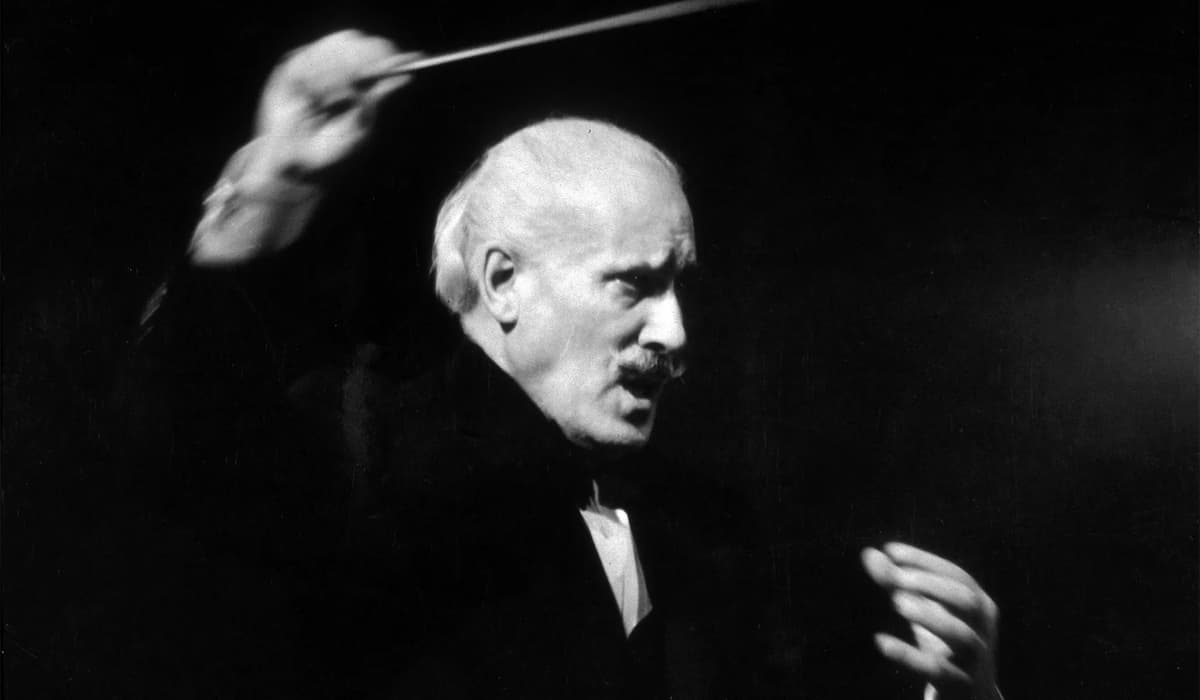
Arturo Toscanini
Sadly, there are still some conductors that bully or needle players with critical barbs.
One shrinks inside when the conductor begins with (add your own aphorism) “(Big sigh) That… was so… sloppy, arhythmic, unmusical.
The conductor would follow that with—”Play again. Can’t you read that it says diminuendo? or
“Can’t you play with vibrato?
In time?
In tune?
Pianissimo?”
Or even worse,” You’re playing like it’s an exercise!” which Bernstein famously said.
Bernstein to Orchestra – You’re Playing This Like an Exercise
One gesture we see a lot is the hand, shushing us up, scowling at our presence. Conductors will do whatever it takes to get results—sing, mime, or shout during the playing when we cannot hear them over the sound of the orchestra. Amusing and even embarrassing. Here are a few examples cited by the entertaining comedians Two Set Violin.
This Famous Conductor DESTROYED the poor musicians
But looking beyond uncalled-for abuse, we orchestral players relish the hilarious conductorisms we hear that are gems. Those that are incomprehensible such as:
“The pitch in that section was very theoretical!”
said George Monseur longtime professor of conducting at Berklee College, and conductor of the Merrimack Philharmonic in Mass who studied with Toscanini.
“Please play on my ictus!”
Causing every musician to whip out their phone to ask Siri what that even means!
We certainly remember those comments that are lost in translation:
“Please take the part home and ‘overlook’ it.” (Erich Leinsdorf)
“All I want is everything!”
(Louis Lane Cleveland Orchestra Associate and resident conductor, conductor of the Akron Symphony, and co-conductor of the Atlanta Symphony.)
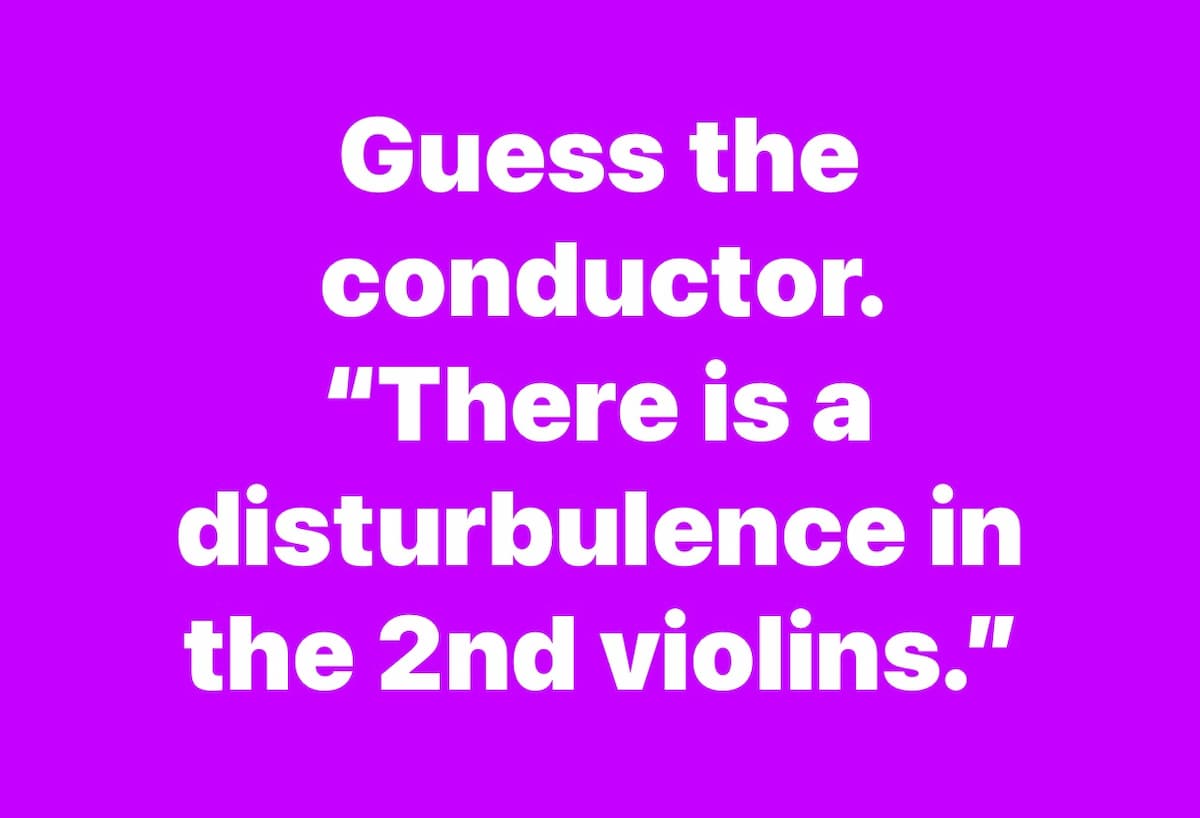
“There is a disturbulence in the 2nd violins.”
(Christoph Eschenbach, German pianist, and conductor)
“Much Much More less!”
(Zouhang Chen with the Wichita Symphony)
And these unusual comments that ooze in sarcasm:

“Go home…boil a metronome and drink the juice.”
(George Szell)
“Mr. L…Stop wallowing in your own sound.”
(Christoph von Dohnányi)
“BASS DRUM! You’re supposed to be playing right now! This is your solo!!
(Lorin Maazel)
Thanks to bass player and professor of Double Bass at Rice University Timothy Pitts for several of these gems.
Gergiev: I’m important you cannot start without me!
YOU CANNOT START WITHOUT ME – Valery Gergiev
Many conductors will become incensed when they feel you are not watching them. Gergiev says, “I’m important. You cannot start without me!” Karajan, known to be gruff at times, likened an orchestra to an English garden—you need to take care of it every day, you have to water it, but also, you must always weed it.
Herbert von Karajan – Beethoven’s 9th Symphony – Rehearsal 30.12.1977
According to cellist Barry Gold, before an orchestra European tour, Leinsdorf once quipped in his thick German accent, “Tank you for flying Lufthansa! Schvimmers to the right, non schvimmers to the left.”
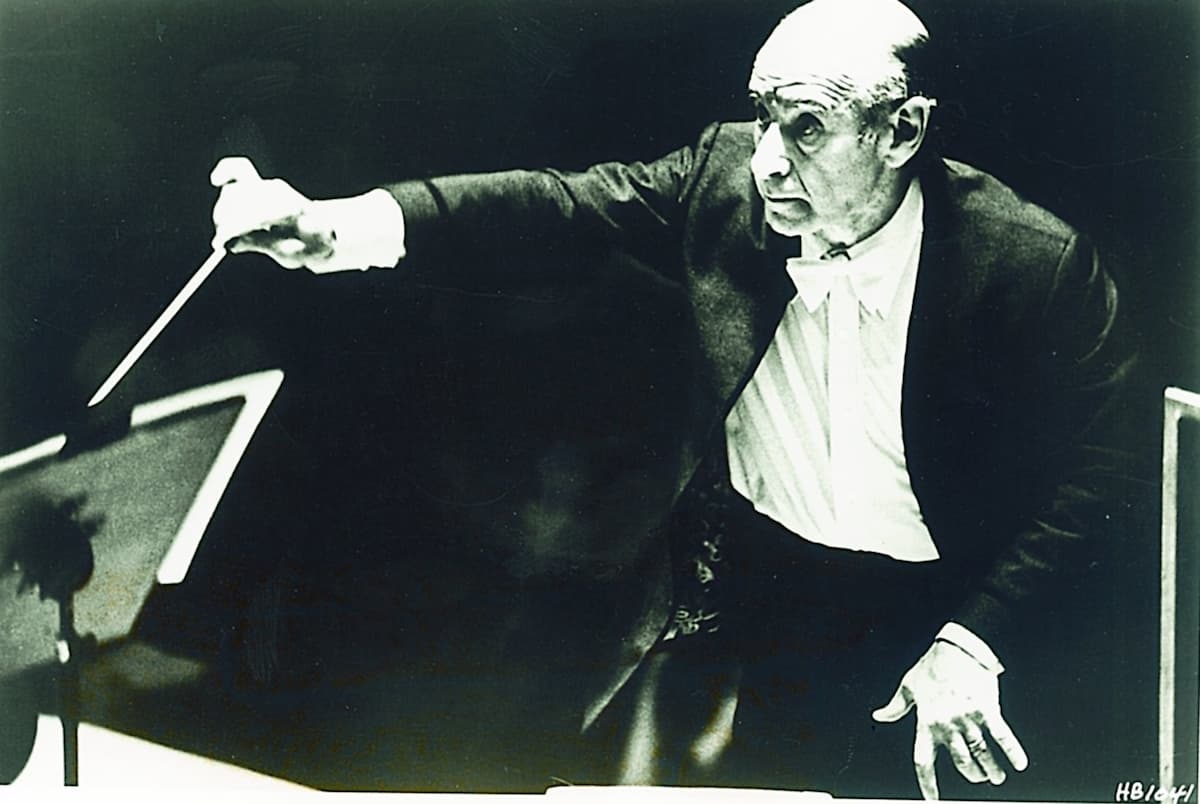
Erich Leinsdorf © euroarts.com
Musicians usually look forward to playing our solos. At least, some might think, the conductor can’t criticize in this case. Wrong. An orchestra was preparing Haydn Symphony in E-flat No. 103, which has a lovely and exposed violin solo in the second movement. A colleague knew they would be rehearsing it, so he practiced the solo well before the first rehearsal. The rehearsal went well, he thought. But the conductor paused, and said “now, do something with that!”
Joseph Haydn: Symphony No. 103 in E-Flat Major, Hob.I:103, “Drumroll” – II. Andante più tosto – Allegretto (Symphony Nova Scotia; Georg Tintner, cond.)
During a break, Leni Samuels, a first violinist with the Cleveland orchestra, was practicing a Brahms String Quartet No. 1 in C minor Op. 51 downstairs. Out of the corner of his eye, he noticed a shadow, but he was concentrating hard on his part and didn’t see who was standing there until after he finished. It was the maestro himself! Szell called Leni over to the piano and said, “You have it all wrong!” Szell then played the quartet for Leni on the piano, without any music, and gave Leni a mini-lesson.
Johannes Brahms: String Quartet in C Minor, Op. 51, No. 1 – I. Allegro (Tokyo Quartet)
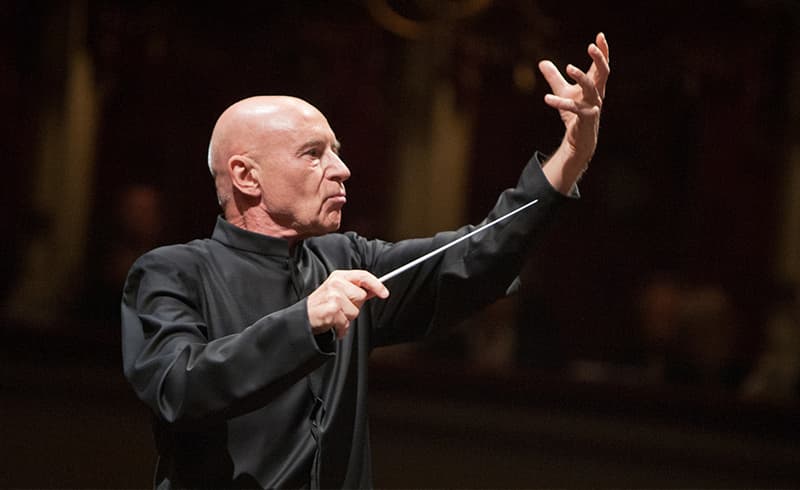
Christoph Eschenbach conducting the Houston Symphony
Even the great conductor and pianist Eschenbach was subject to Szell’s outbursts. Eschenbach was rehearsing the Mozart Concerto No. 19 in F major K 459 in the conductor’s studio prior to the first orchestral rehearsal. Szell whistled the accompaniment as Eschenbach played the solo. Suddenly Szell exploded, “You exaggerate everything. This is NOT the Christoph I know,” and he stormed out of the room. In a daze, the pianist reflected on the comment. When Eschenbach returned to the hall for the dreaded rehearsal with the orchestra a few days later, he was anxious. He didn’t know what to expect. Eschenbach began to play. Szell bellowed, “Very good! NOW this is the Christoph I know. Bravo!”
Wolfgang Amadeus Mozart: Piano Concerto No. 19 in F Major, K. 459 – III. Allegro assai – Cadenza – Tempo I (Christoph Eschenbach, piano; London Philharmonic Orchestra; Christoph Eschenbach, cond.)
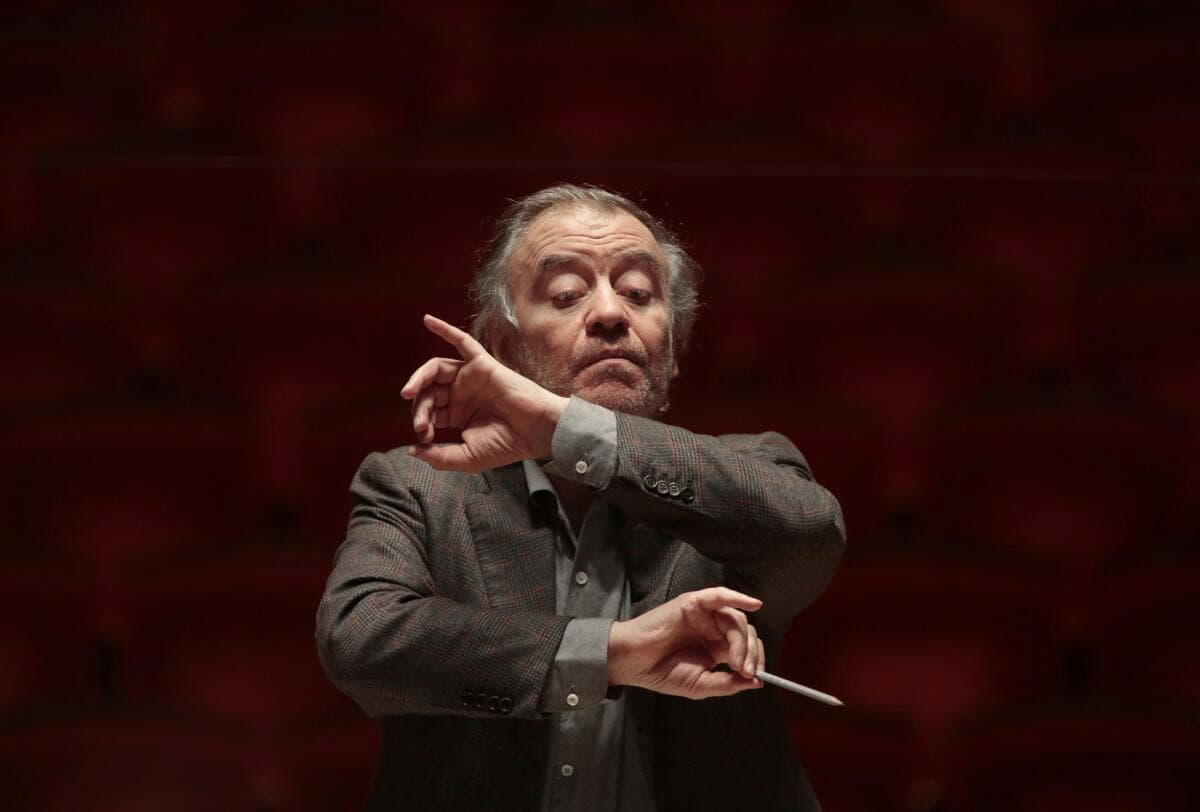
Russian conductor Maestro Valery Gergiev rehearses with the Philadelphia Orchestra at Kimmel Center for the Performing Arts on Feb. 12, 2015. © Carolyn Cole / Los Angeles Times
All that said, musicians and conductors feel compelled to do justice to the great masterworks and to produce the magic of the concert experience despite having different ways of getting there as we prepare. You rehearse and then you play, giving everything for the performance to convey the music to the audience. Eschenbach says it succinctly. “Every concert is a highlight of life. Every concert.” This is what live music is all about.
For more of the best in classical music, sign up for our E-Newsletter
